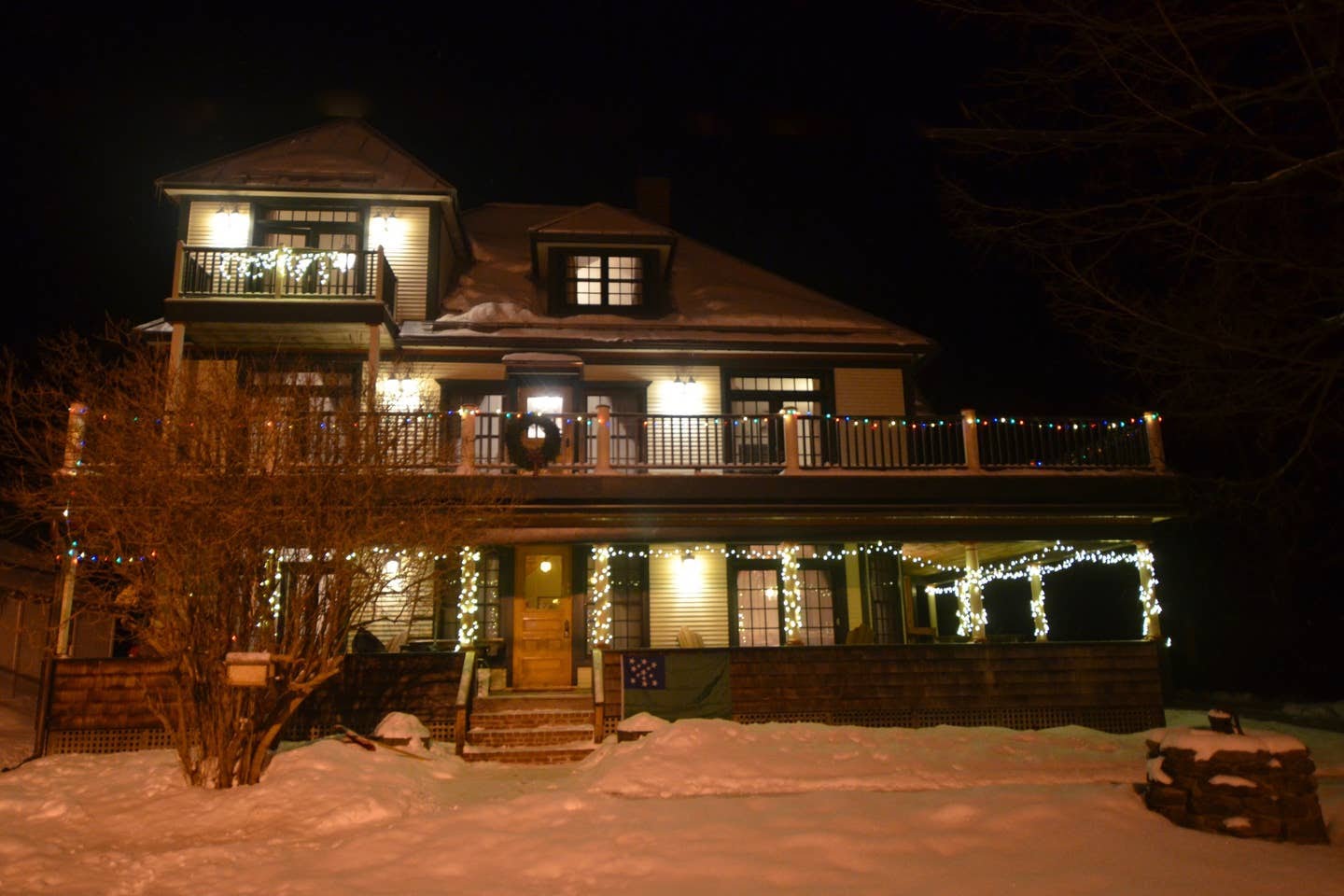The number of short-term rental properties in Vermont has been rising steadily over the past five years, raising concerns among advocates who say the trend has contributed to a decrease in affordable housing.
Short-term rentals now make up about 2.5% of the state housing stock, and the total number of short-term stays has risen by about 7,000 since 2014, according to data included in the Vermont Housing Needs Assessment. The trend has led to renewed calls from some advocates for greater regulation on short-term rentals.
“Vermont has, in a lot of parts in our state, a lack of supply of affordable housing,” said Maura Collins, the executive director of the Vermont Housing Finance Agency, which was hired by the state to conduct the assessment. “Anything that’s going to limit the supply of housing has the potential to impact the cost of housing.”
Many short-term rentals are centered around ski communities. In Lamoille County, home to Stowe Mountain Resort and Smugglers’ Notch, short-term rentals account for 9% of the total housing stock. There was an 18% increase in the number of short-term rentals in the county between July 2018 and July 2019.
Chris Donnelly, the director of community relations for the Champlain Housing Trust, said the increase in tourism jobs and decrease in available housing creates a “double whammy.”
“People have a hard time affording to live here, and if housing is coming out of the market or is being priced out of people’s means because of these other options, it’s just harder and harder for Vermonters to make a living here,” Donnelly said.
“It’s a relationship that’s a little perverse,” Donnelly added.
Collins attributes the steady rise of short-term rentals over the last five years to the ease of platforms like Airbnb and HomeAway for property owners. Airbnb hosts in Vermont hauled in more than $48 million in 2018, according to the company.
The coronavirus has upended Vermont’s tourism economy and led to quarantine orders for out-of-state visitors. Short-term rentals have been excluded from percentage occupancy restrictions put in place for multi-room lodging facilities. Many Airbnb hosts across the country have struggled amid a steep decline in travel due to the pandemic, but the company said this week that it saw more U.S. bookings between May 17 and June 3 than it did for the same period in 2019 as states reopen.
Under legislation signed by Gov. Phil Scott in 2018, short-term renters now must register with the Vermont Department of Taxes and meet general safety standards. Erhard Mahnke, the coordinator of the Vermont Affordable Housing Coalition who is running for State Senate in Chittenden County, said he supports more state and local regulation on short-term properties.
“The work that the General Assembly has done so far is a good start, but it needs to be built on so as to make sure that increases in short-term rentals don’t continue to worsen our existing affordable housing shortage and the affordability gap that exists for most Vermont renters,” Mahnke said.
The Housing Needs Assessment found that as of last July, 72% of short-term rental homes could be available for someone to rent for the entire month.
“Housing stock issues are huge in our state,” said Renee Weeks, the co-chair of the Vermont Coalition to End Homelessness. “I just wonder how much of our housing stock is influenced by rental units coming off the market to be put into short-term use, such as through Airbnb vs. being rented out to people living in Vermont and working in Vermont.”
Bryan Stascavage, the manager of Faberge Home Rentals, is less concerned.
“It seems like a very small part of the market is being blamed for a very big problem,” he said.
“Tourism brings in a lot of money for Vermont,” Stascavage said. “The people that would come there, they spend at the artist shops and the local artisans and the farm stands and all those places, so you have a lot of money coming in for those people.”
Amy Spear, the vice president of tourism at the Vermont Chamber of Commerce, said she, too, acknowledges that short-term rentals contribute to Vermont tourism. But the Chamber — which represents the hospitality industry — is calling for “consistent regulation” of hotels and short-term stays alike.
“There has certainly been a lot of feedback from the lodging industry that anyone that’s accepting overnight guests in the state of Vermont should be held to the same standards, from a health and safety perspective in particular,” Spear said.
Spear said the Chamber supports the creation of a statewide short-term rentals registry.
Stascavage, though, says that short-term rental properties and hotels are “two different animals.”
“A hotel is a hotel and a house is a house,” he said. “You don’t regulate a personal vehicle the same as a Mack truck.”
While the virus has clouded the state’s tourism economy in uncertainty, Collins, the VHFA executive director, said she expects the lull in the short-term rental market to be temporary.
“I think we may still see a lot of demand for short-term rentals in our state because we have so much outdoor recreation year-round,” she said.
Source: VTDigger




